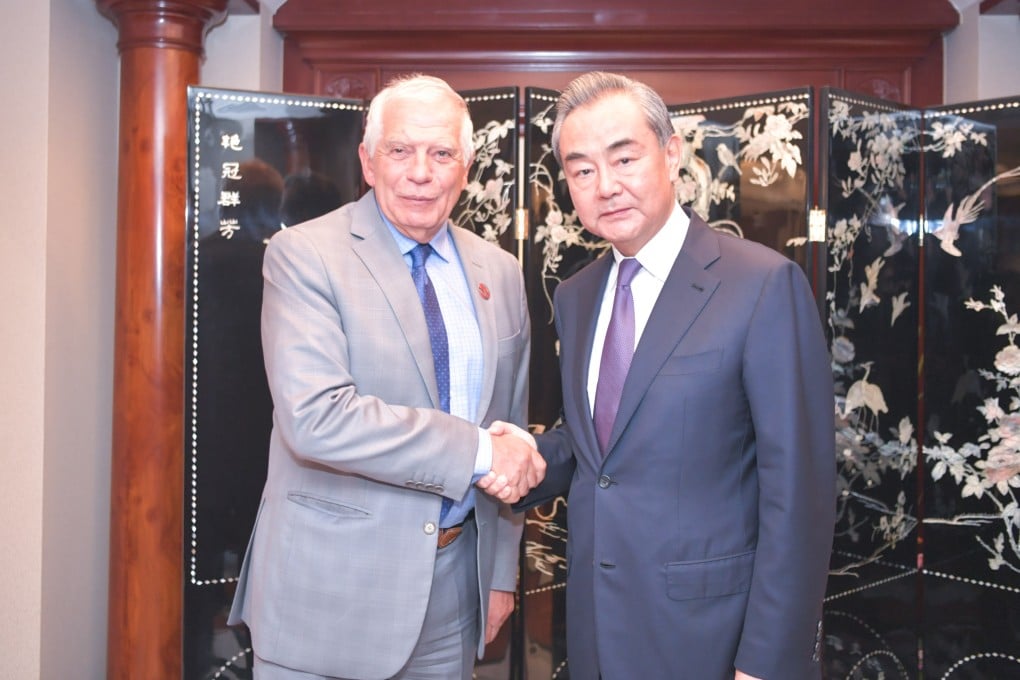Advertisement
EU foreign affairs chief Josep Borrell eyes October trip to China, but has not been assured he will meet absent Foreign Minister Qin Gang, sources say
- Borrell ‘tentatively’ agreed to the visit after a meeting with China’s foreign policy chief Wang Yi last week, according to a senior Brussels source
- He has twice had to postpone trips to China this year – first because he caught Covid and then because of Qin’s sudden unavailability
Reading Time:2 minutes
Why you can trust SCMP
3

EU foreign affairs chief Josep Borrell has “tentatively” agreed to visit China in October following a meeting with China’s top diplomat Wang Yi in Jakarta last week.
However, Brussels has not been given assurances that the meeting would be with Qin Gang, the foreign minister who has not been seen in public for three weeks, according to a senior EU source who spoke on condition of anonymity.
A second source said Qin’s name did not come up during Saturday’s meeting with Wang, who is head of the Communist Party’s Office of the Foreign Affairs Commission.
Advertisement
Borrell, the EU’s high representative for foreign affairs and security policy, has seen two trips to China cancelled in recent months, first because he contracted Covid-19 and then abruptly because of Qin’s unavailability.
No detailed explanation was given by the Chinese side as to why the foreign minister was not available to host Borrell.
Advertisement
The aim of Borrell’s visit is to hold the annual “strategic dialogue”, a necessary precursor to the EU-China summit, which is supposed to happen before the end of the year.
Advertisement
Select Voice
Select Speed
1.00x